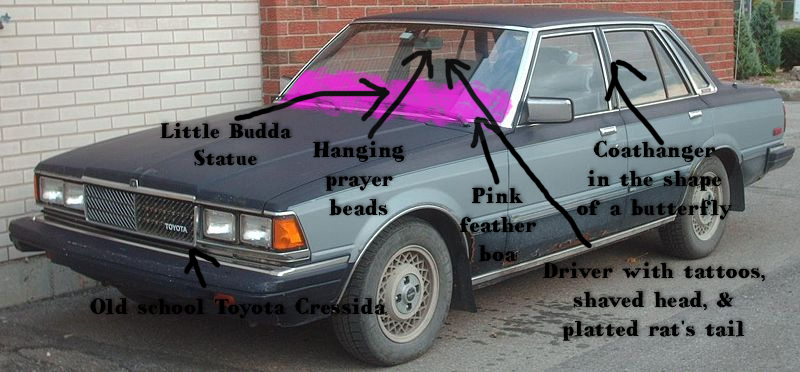In 2016 a commenter, Treena, pointed out that this post is pretty judgmental and unloving. She’s right. I don’t, as a general rule, delete or edit my mistakes. I want to own them. But having read this post again, I regret the way that I spoke about other people. Strangers. My neighbours. This post is unloving, ungracious, a bit superior, and, to be frank, it is poorly written. And I trust that you’ll forgive me for all of that. I hope would certainly not write a post like this now, one of the interesting things about blogging over such a period is that there’s not much in my archives that represents where I am now in terms of my thinking, writing, or maturity, but it is interesting, and perhaps encouraging, for me to look back on old posts and be able to see where I’ve come from, for good or for ill. So thanks again to Treena for being so bold as to call me out, and I apologise for this post. I recommend not reading it, and certainly wouldn’t recommend thinking it speaks for me, or should speak for you.
Last Sunday, as we were driving home from church in our conservatively silver and thoroughly ubiquitous Holden Vectra, I caught a flurry of pink movement out of the corner of my eye. It was birdlike. Feathery. But fluorescent. It happened again. I looked in the rearview mirror – and bearing down on my tail, like a bird of prey, was what can only be decribed as the Boganmobile.
If Bruce Wayne had been traumatised, as a child, by a swarm of bogans rather than bats, (just what is the collective noun for bogans? A Track suite?) this is the vehicle he would drive (and quite possibly, assuming the guy was wearing a wifebeater under his Jim Beam shirt, the outfit he’d wear).
This, friends, is my recreation of that car. We did try to take a surreptitious photo out our window – but it came out blurry on account of my saying “no, Robyn, don’t stick the camera up so obviously – that platted man and his ladyfriend minions will attack us if we make eye contact”…
The question racing through my mind as this car first tailgated, then overtook, then drove next to us was “how cool does this guy think he is with that cigarette smoke billowing into the back seat where his two passengers sit gawking at his every move?” Or, to frame the question in a more sociologically correct manner “what is the self conception of the bogan when it comes to the question of his/her identity?”
Do bogans know they are bogans? Or do they believe they are normal and the rest of society weird? Do they think “why do people waste money on new cars and clothes when a 1980s Holden (or in this case Toyota) will suffice? Why spend money on new clothes when you can wear freebie promotional gear from your beverage company of choice and a pair of threadbare trackpants? Why drink anything you have to spell that is not made in your state’s finest brewery – or if you’re feeling a little adventurous – some VB? Why is it taking so long for this trend of adorning one’s motor vehicle/home with religious relics and costume jewelery to catch on?
Are bogans born bogans by a genetic quirk – are they an evolutionary throwback, a quirk, a mutation – or, is it likely that through the propensity to cast one’s oats widely and early – the bogans will in fact inherit the earth as the next stage of human development. Homoboganus? Or is it a matter of nurture – are bogans brought up bogans by bogan dads, with bogan grandads – do they suckle on tins of VB, raised by the pseudo-surrogacy of weekly V8 Supercar Events, drag races and trips to the dog tracks. Do Bogans raise their children draped in Australian Flags with the warcry “kiss the flag” shouted each and every Australia day?

At what point can you no longer tell the difference between nature and nurture?
Is there a conversion rate? Do non-bogans ever become bogans for love, does anybody catch a wiff of sweaty mullet and think “that’s the hair style for me. Goodbye lattes. Hello Blend 43 in styrofoam cups, reheated in the microwave with yesterday’s Dominos. You’d think not. Unless there’s some appeal I just can’t fathom to a life lived reliving the classic moments in culture from the late 80s and early 90s sucking on a Winnie Blue and enjoying the music of INXS, AC/DC and any other bands whose names involve a four letter acronym.
Friends – can you answer any of these questions? Are there any ex-bogans in the house?
